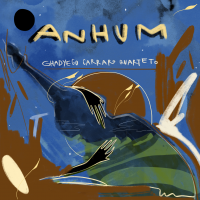Home » Jazz Musicians » Phoebe Bridgers
Phoebe Bridgers
"Yesterday, Tomorrow." The house is exactly what you’d expect: practically a studio apartment except it stands on its own, draped in honeysuckle and Dutchman’s pipe; a yard of dune sedge and stone. Her dog is buried in the garden along the eastern wall; sometimes, she wonders if the ground will bloom half-a-dozen of him under a certain kind of moon. In the morning the light creeps sideways through the windows and lights her up from the chest down, her head nestled in the shadow. Sometimes she finds herself playing guitar before she has left sleep. Her hands strum but her mind is still dreaming. (It’s her birthday, she’s at the movies, the screen is a tidal wave, someone touches her leg, she wakes up with her fingers tangled in the strings and the kettle whistling.)
The house is haunted. It should go without saying, but it should be said anyway. The house is haunted, but no one knows anything about the ghost or how it messes with you, except for the fact that every time she goes away (to Texas, to Memphis, to Graceland, to Germany) she always ends up coming home again. It’s the strangest kind of haunting. Everyone calls it, the house, the House of Punishment—more than one mistaken citizen has turned up looking for a similarly-named erotic dungeon on the other side of town—but the name is misleading. It is not a house where someone was punished, or a house where someone might be punished, but a house that replaces punishment; instead of feeling guilt or regret you must play quietly in any corner, and eventually the emotion will resolve itself.
Inside, every door frame is notched: the respective growths of former tenants, friends. On one of them, a place where—deep in her cups—she’d measured her height as a full five inches taller than normal; only the next morning did she realize, cotton-mouthed, that she’d been standing on her toes when she’d slid the pencil over the apex of her skull. There had been a Murphy bed once, she was certain, and sometimes when she was very, very tired she would imagine her bed, which was not a Murphy bed, snapping her up into the wall. Next to her bed, in her nightstand drawer, lived the following things: crumpled receipts, red yarn, eight dollars, a white lighter, two undeveloped film cameras, Grether’s Pastilles in their old-timey tin, fistfuls of birthday cards with the shimmer worn off, a pocket-sized copy of the constitution, a pocket knife, a pair of swimming goggles, a pair of recording headphones, shoelaces twisted into a Gordian knot, an unpaid parking ticket, a strip of Peanuts Halloween stickers, an MRI request form from when she sprained her finger, colloidal silver (someone told her it would cure her cold; someone else told her it would give her Argyria), a map of Kyoto (she’d gotten bored at the temple), incense, her first fan letter (she promised herself she’d respond; she never did), a bunch of bolts, a plastic doll’s hand, doggie bags (he’d died over a year ago), an unopened Replacements cassette, an unopened 23 & Me kit, an unopened fortune cookie, unopened pepper spray she doesn’t trust herself to take out of the packaging. In a fake book on her desk—pleather-bound and conspicuously absent a title—she collects her used boarding passes, old concert tickets, disconnected wristbands. It doesn’t escape her notice that she can’t throw anything away, that objects remain unopened, unresolved, untangled, unconsumed. She is always in the middle. She is never at the end of anything.
Read more










